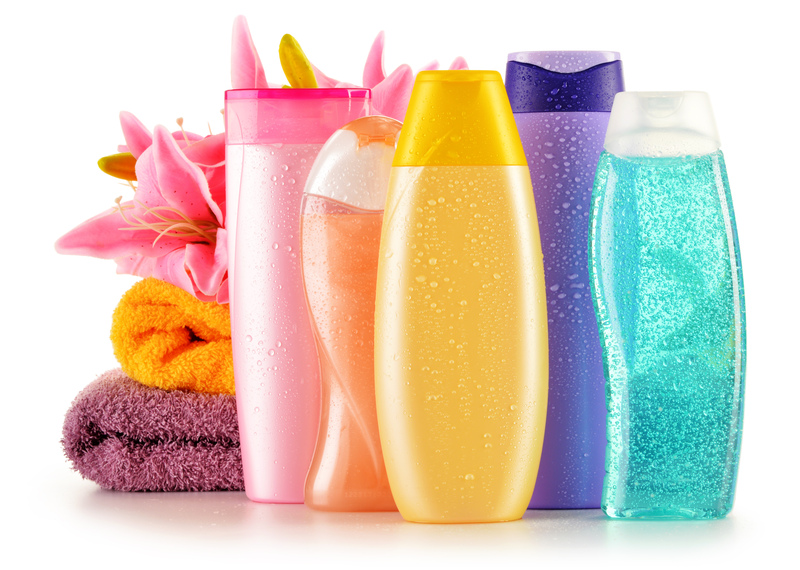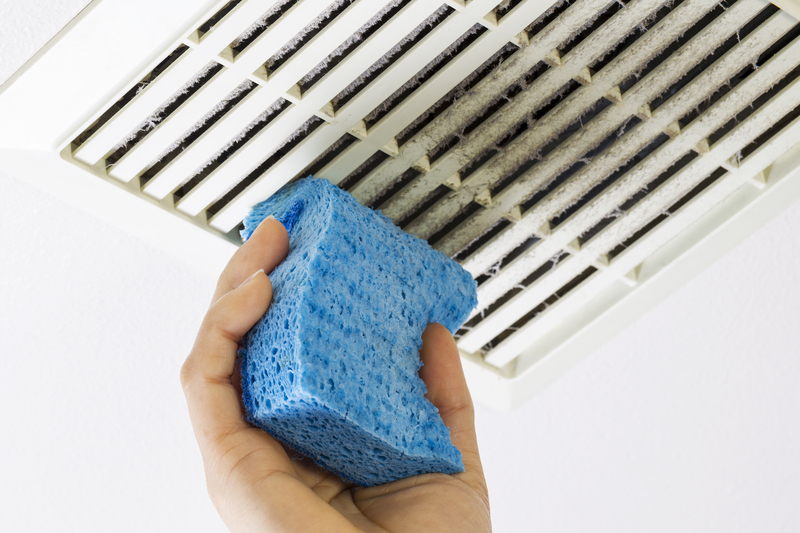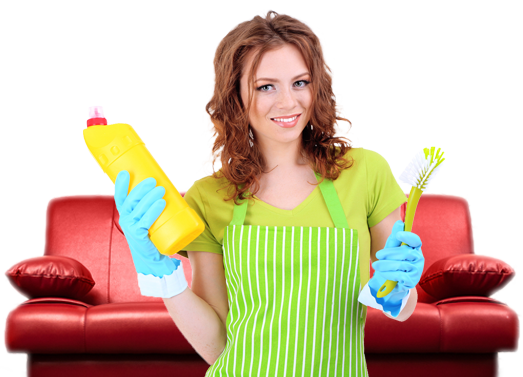Practical Home Carpet and Hard Flooring Cleaning Advice
Posted on 14/09/2025
Practical Home Carpet and Hard Flooring Cleaning Advice
Are you looking for effective ways to keep your home's carpets and hard floors spotless? From plush living room carpets to elegant hardwood or vinyl floors, every surface requires specific care to maintain its beauty and longevity. In this comprehensive guide, you'll discover practical home carpet and hard flooring cleaning advice, expert-recommended routines, stain removal techniques, and maintenance tips tailored for all major floor types.

Why Regular Carpet and Flooring Maintenance Matters
The importance of routine floor care cannot be overstated. Not only does it help prolong the life of your floors and carpets, but it also contributes to a healthier indoor environment by reducing allergens, dust, and bacteria. Investing time in proper cleaning practices saves you money on costly replacements and professional restoration in the long run. Below, we provide detailed, practical carpet and hard flooring cleaning tips for every homeowner.
Carpet Cleaning: Effective Strategies for a Clean, Fresh Home
Daily and Weekly Carpet Care Tips
- Vacuum Regularly: Frequent vacuuming (at least twice a week) helps remove dirt, dust mites, and pet hair before they settle deep in the fibers. Use a vacuum with HEPA filter for best results, and pay special attention to high-traffic areas.
- Spot Clean Immediately: Address spills as soon as they happen. Gently blot (never rub) the affected area with a clean, white cloth and apply an appropriate carpet cleaner or a homemade solution (like diluted white vinegar).
- Rotate Furniture: Occasionally moving heavy furniture prevents permanent indentations and uneven wear on your carpet.
- Use Entrance Mats: Place mats at all main doors to keep dirt and outdoor particulates from being tracked inside your home.
Deep Cleaning Your Carpet: DIY and Professional Options
Deep cleaning, done every 6-12 months, removes deeply embedded dirt and refreshes your carpet. You can rent a carpet cleaner, use your own machine, or hire professionals for a thorough job.
- Shampooing: Use a quality carpet shampoo and machine, following manufacturer instructions. Allow carpets to dry completely before heavy use.
- Steam Cleaning: Steam (hot water extraction) is effective against tough stains and pet odors. Most professional carpet cleaners use this technique for best results.
- Dry Cleaning: Ideal for delicate carpets, dry-cleaning methods use minimal moisture and powder-based cleaning agents.
Tip: Always test any cleaning solution on an inconspicuous area before full application to avoid discoloration or damage.
Natural and Eco-Friendly Carpet Cleaning Advice
- Baking Soda Freshener: Sprinkle baking soda over the carpet, leave for 30 minutes, and vacuum thoroughly. This neutralizes odors and leaves your room smelling fresh.
- Vinegar Solution: Mix equal parts white vinegar and water for spot cleaning light stains and deodorizing. Rinse with plain water and blot dry.
- Enzyme Cleaners: For pet stains and organic spills, enzyme-based cleaners are highly effective and environmentally safe.
Stain Removal Guide for Common Carpet Spills
- Red Wine: Blot immediately, apply cold water, then use a mix of liquid dish soap and hydrogen peroxide.
- Coffee: Dab with a solution of white vinegar, water, and mild detergent.
- Greasy Foods: Absorb with baking soda, then use a degreasing dish soap solution.
- Ink: Blot with rubbing alcohol on a cloth--never pour directly.
- Pet Accidents: Remove solids, blot liquid, treat with an enzyme cleaner for odors and stains.
Always blot and never rub stains, as excessive friction can push the stain deeper into the carpet fibers.
Hard Flooring Cleaning Advice: Tailored Tips for Each Surface
General Best Practices for Hard Flooring Maintenance
- Regular Sweeping: Use a soft-bristled broom or microfiber dust mop daily to remove abrasive dirt and grit that can scratch your floors.
- Prompt Spill Cleanup: Wipe spills immediately to prevent staining or water damage, especially on wood and laminate floors.
- Use Floor Protectors: Attach felt pads to furniture legs to avoid scratches and scuffs.
- Mat Placement: Entryway and kitchen mats catch dirt and water before it reaches your flooring.
Cleaning Hardwood Flooring: Preserving Shine and Integrity
- Avoid Excess Moisture: Never use a soaking-wet mop on hardwood. Instead, use a damp (not wet) microfiber mop and wood floor cleaner designed for finished hardwood.
- Gentle Products: Stay away from harsh detergents, ammonia, or abrasive cleaners, as they can strip protective coatings.
- Buff Regularly: Buffing with a dry microfiber cloth can restore luster to finished hardwood floors.
- Control Humidity: Maintain indoor humidity between 35-55% to avoid warping or gapping.
Tile Flooring: Practical Cleaning and Maintenance Advice
- Frequent Sweeping: Grit acts like sandpaper on tile surfaces. Sweep or use a vacuum designed for hard floors regularly.
- Mop with Mild Cleaner: Use warm water and a few drops of dish soap or a pH-neutral tile cleaner. Avoid acidic substances that can erode grout.
- Grout Care: Clean grout lines with a baking soda paste and an old toothbrush. Seal grout every year or as needed to prevent staining.
- Address Hard Water Stains: Remove with vinegar solution, but rinse thoroughly to prevent residue.
Laminates, Vinyl, and Linoleum: Cleaning and Upkeep Tips
- Dry Clean First: Always remove loose dirt with a dry mop or vacuum before using wet cleaning methods to avoid spreading grit.
- Never Use Excessive Water: Use a lightly dampened mop and a gentle, no-rinse floor cleaner. Ignore wax-based polishes unless recommended by manufacturer.
- Avoid Abrasive Tools: Scrubbing pads and harsh brushes can scratch the protective layer of your laminate or vinyl flooring.
- Stain Removal: For stubborn marks, use a baking soda paste or rubbing alcohol applied with a soft cloth.
Stone Flooring: Special Considerations
- pH-Neutral Cleaners Only: Many natural stones (marble, travertine, granite) are sensitive to acidic or alkaline cleaners.
- Sealing: Stone floors often require sealing to prevent staining--reapply sealant as directed by your installer.
- Gentle Mopping: Use a microfiber mop plus stone-safe cleaner for routine cleaning; avoid vinegar and citrus products.
Proactive Floor Maintenance: Prevent Damage and Extend Lifespan
Routine Routines That Really Work
- Declutter Regularly: Keeping your floors free of clutter minimizes accidental scratches and makes regular cleaning much easier.
- Implement "No Shoe" Policy: Shoes track in dirt, chemicals, and grit that wears down both carpets and hard floors.
- Use Rugs Strategically: Placing rugs in high-traffic zones reduces wear on carpets and flooring, plus makes cleaning easier--a must for busy households.
- Trim Pet Nails: Pets are family, but claws can cause scratches. Regular trims prevent damage to floors and furniture alike.
Choosing the Right Tools and Products for Floor Care
Having the correct equipment makes all the difference in your home's maintenance routine. Consider investing in the following:
- HEPA Vacuums: Capture microscopic allergens and dust particles.
- Microfiber Mop Systems: Trap dust and debris efficiently; reusable pads are environmentally friendly, too.
- pH-Neutral Cleaners: Safe for both hard floors and most carpets, they clean effectively without damaging protective finishes.
- Spot Cleaners: Essential for immediate stain treatment, keeping unsightly marks from becoming permanent.

Frequently Asked Questions on Home Floor Cleaning
How often should I deep clean carpets and hard floors?
Carpets should be deep-cleaned every 6-12 months, more often for homes with pets or children. Hard flooring varies: tile may need deep scrubbing only annually, while wood floors should be refreshed according to traffic and finish type.
Can I use household vinegar on all hard floors?
While vinegar is a popular natural cleaner for many surfaces, it is not safe for natural stone flooring or hardwoods. Stick to pH-neutral solutions or manufacturer-recommended products for these delicate materials.
What's the best way to remove pet hair from carpets and couches?
Vacuum with a pet hair attachment, use a lint roller, or slightly dampen a rubber glove and run it over the surface to pull up stubborn hairs.
How do I prevent floors from losing their shine?
Clean regularly with the right products, avoid dragging furniture, use mats in entryways, and periodically apply protective finishes or polish as needed for your specific floor type.
Conclusion: Clean Floors for a Healthier, Happier Home
With these practical home carpet and hard flooring cleaning tips, you'll extend the life and beauty of your surfaces. Consistency is key: Choose appropriate products and tools, develop a regular cleaning routine, respond promptly to spills and stains, and protect your floors from future damage. Whether you prefer eco-friendly solutions or industry-standard techniques, your efforts will be rewarded with clean, comfortable rooms the whole family can enjoy.
Remember: Clean floors don't just look better-- they contribute to a healthier living space and a home you're proud to show off. Make smart, practical choices, and your carpets and floors will thank you for years to come!




